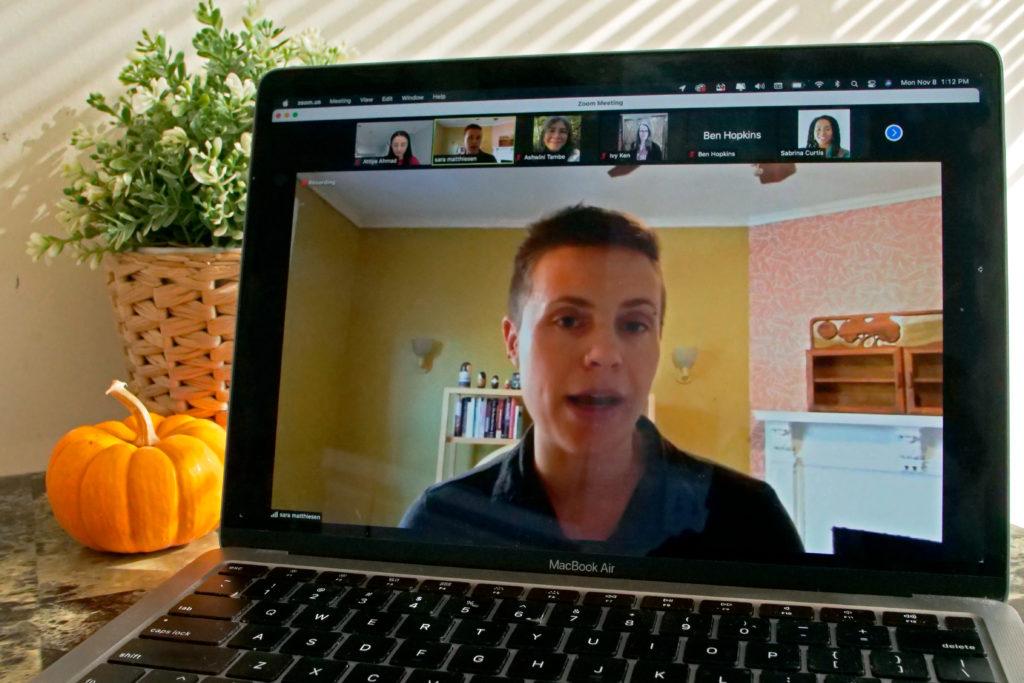The Women’s, Gender and Sexuality Studies program hosted a virtual discussion Monday about how starting a family became more of a “choice” for women following the Roe v. Wade Supreme Court decision in 1973.
Sara Matthiesen, an assistant professor of women’s, gender, and sexuality studies and history, said state government policies and programs have neglected reproductive labor and “family making” rights through insufficient funding, despite the historic reproductive rights movement after Roe v. Wade. Matthiesen promoted the discussion as the topic of her new book, “Reproduction Reconceived: Family Making and the Limits of Choice after Roe v. Wade” at the event, which was moderated by Ashwini Tambe, the program’s director.
Attiya Ahmad, an assistant professor of anthropology, shared opening remarks and said Matthiesen’s book seeks to educate readers that Roe v. Wade symbolizes a woman’s choice to bypass the expectation to have children in addition to the option of an abortion. She said the 1973 Supreme Court case encouraged Americans to consider their available choices concerning family building once abortion was decriminalized, as federal and state governments began to slash funding for social programs.
She said recent attacks on abortion with historical backgrounds, like the recently adopted Texas abortion law that bans abortion six weeks after conception, indicate the current state of reproductive rights in America.
“We know that choice is a little bit of a misleading way to characterize even the ability to obtain an abortion in the U.S.,” Ahmad said. “So if there are so many barriers standing between you and the procedure, your choice really exists only in theory, and that’s not terribly useful in practical terms.”
Ahmad said state governments constrict the ability to decide whether to have children, failing to provide support through measures like universal child care that would benefit working parents. She said she hopes the book motivates readers to observe state governments’ negligence in meeting the costs and needs of family making – more of a privilege than a right.
“It’s really necessary if we want to understand what must be overcome to achieve true reproductive freedom for all,” she said.
Matthiesen said her book focuses on the economic and social costs of reproductive labor and family making, which are especially imperative to consider during the COVID-19 pandemic. She said the book analyzes current debates about reproductive rights and federal government policies and social programs that have hindered proper support for family care.
“The book provides us with a critical vantage point and with the deeply textured historical analysis to back it up, so we can enter into the fray in ways we’re attentive to the gender and racialized nature of reproductive labor and family making,” she said.
Matthiesen said she wrote about state governments’ neglect for family making, because she wanted to emphasize how their inaction mirrors state legislation restricting reproductive rights. She said while the book offers mutual aid efforts that attempt to address state inaction, these efforts are constantly overused and fail at the local community level.
“I hoped that offering state neglect would allow me to visiblize the effects of the serious consequences of state inaction,” she said.
Matthiesen said increasing demands, like providing basic minimum income for women staying at home to take care of their children, helps frame reproductive labor to reflect its true value.
She said the President Joe Biden’s social spending bill, which has drawn resistance from Sen. Joe Manchin, D-W. Va., can only address issues like climate change and the expansion of social welfare programs if mechanisms like the racial division between women of color and white women in family care continue to exist and devalue reproductive labor.
“I do wish to have like a dialogue with Manchin about reproductive labor and feminist critiques of just how much capitalism profits off of labor that is not seen as real valuable work,” Matthiesen said.








